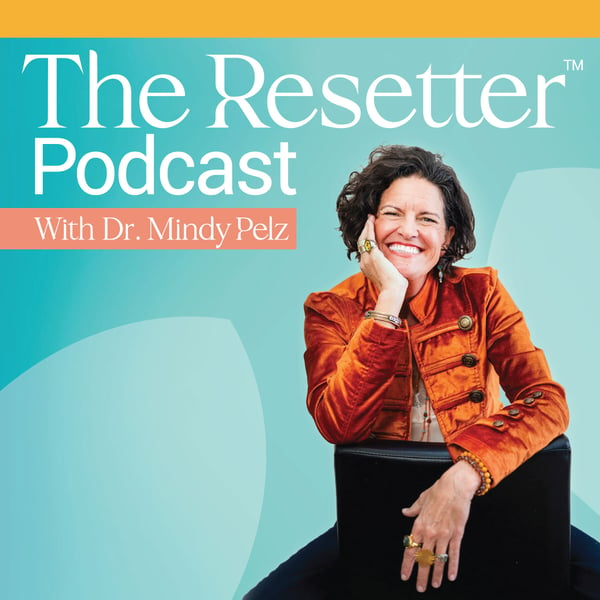Understanding the Changes in Your Female Brain After 40 with Dr. Lisa Mosconi
The Resetter Podcast with Dr. Mindy
Dr. Mindy Pelz
4.8 • 1.1K Ratings
🗓️ 6 May 2024
⏱️ 93 minutes
🧾️ Download transcript
Summary
Neuroscientist Lisa Moscone discusses the evolutionary reasons behind menopausal brain transformations, emphasizing resilience and complexity. This episode covers brain function shifts, the grandmother hypothesis, and the impact of hormone therapy on brain pruning. Along with Dr. Mindy, Lisa stresses the importance of research on menopause's mental health implications and advocates for personalized menopausal toolkits. They also highlight the benefits of a plant-forward diet, fibre for hormonal balance, and the influence of estrogen on brain health.
To view full show notes, more information on our guests, resources mentioned in the episode, discount codes, transcripts, and more, visit https://drmindypelz.com/ep234
Dr. Mosconi holds a PhD degree in Neuroscience and Nuclear Medicine from the University of Florence, Italy. A world-renowned neuroscientist, she ranks in the top 1% of scientists of the past 20 years by official metrics. Recognized by The Times as one of the 17 most influential living female scientists and honored in ELLE 100: Women That Are Changing The World, Dr. Mosconi has been acclaimed as “the Mona Lisa of Neuroscience” by ELLE International.
Check out our fasting membership at resetacademy.drmindypelz.com.
Please note our medical disclaimer.
Transcript
Click on a timestamp to play from that location
| 0:00.0 | On this episode of the Reseter podcast, have I got a crazy treat for you. |
| 0:10.0 | I have brought you Lisa Moskoni and this conversation for all of my peri menopause, |
| 0:19.3 | menopause and post menopopausal friends out there. |
| 0:23.0 | This is the brain conversation I've been dying to bring you. |
| 0:28.0 | So let me tell you who Lisa is and what you're about to hear. So hopefully you've heard of Lisa, but if you haven't, |
| 0:37.2 | she has written the XX brain and her most recent book is called the menopause brain and she is a neuroscientist and she is in |
| 0:46.1 | deep with research specifically around all aspects of the female brain. |
| 0:52.9 | The most current research she's been doing |
| 0:54.8 | is on the menopausal brain. |
| 0:56.5 | So I have been dying to bring her to you all |
| 0:59.5 | to really dive into some key helpful pieces of information we can all use to navigate this crazy |
| 1:07.0 | brain experience that many of us have as we go through the perimenopause and menopausal journey. |
| 1:15.8 | So with that said, here's what you're going to hear. |
| 1:19.0 | So for starters, we talked about three major times in a woman's life where there is a |
| 1:25.0 | neuronal pruning that happens. What that means is that the brain |
| 1:30.0 | actually starts to get rid of what no longer serves it and a new brain is formed. |
| 1:35.9 | So many of these three times of life will be familiar to you. |
| 1:40.5 | It's puberty, pregnancy, and pereminopause. |
| 1:44.0 | But what is fascinating about what Lisa and I |
| 1:47.1 | discuss in this is that when you look at puberty, |
| 1:50.7 | there's a very specific reason the brain needs to prune itself and grow |
| 1:55.4 | bigger. We talk about that. When we look at pregnancy same thing. Very specific |
... |
Please login to see the full transcript.
Disclaimer: The podcast and artwork embedded on this page are from Dr. Mindy Pelz, and are the property of its owner and not affiliated with or endorsed by Tapesearch.
Generated transcripts are the property of Dr. Mindy Pelz and are distributed freely under the Fair Use doctrine. Transcripts generated by Tapesearch are not guaranteed to be accurate.
Copyright © Tapesearch 2025.

